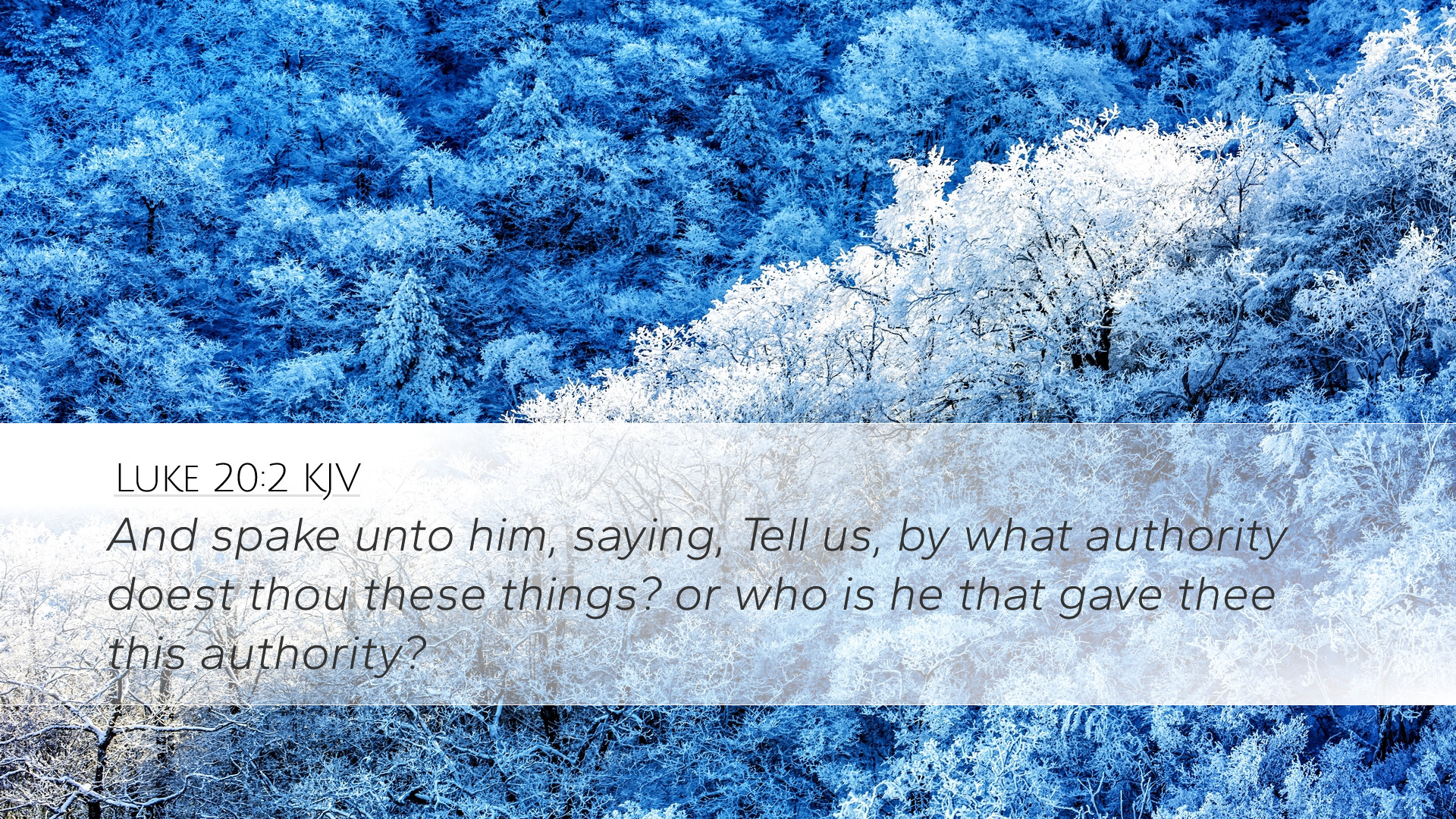Commentary on Luke 20:2
Luke 20:2 states:
"And spake unto him, saying, Tell us, by what authority doest thou these things? or who is he that gave thee this authority?"
Context and Setting
The passage occurs during the final days leading to the Passion of Christ, situated in the temple where Jesus had been teaching. The Jewish leaders sought to undermine His authority as He performed miracles and offered teachings that challenged existing norms.
Insights from Commentaries
Matthew Henry
Matthew Henry emphasizes the challenge posed by the Jewish leaders as they question Jesus’ authority. They were threatened by His popularity and the implications of His teachings, thus attempting to discredit Him. Henry points out that this question was not an innocent inquiry but rather a cunning attempt to trap Jesus into making a statement that could be used against Him:
- Authority and Accountability: Henry notes that true authority stems from divine commissioning, and the leaders’ skepticism highlights their failure to recognize the divine nature of Jesus' ministry.
- Fear of Man: The religious authorities were more concerned about public perception than seeking the truth, illustrating a common struggle among leaders.
- The Unwillingness to Learn: Their question reflected their spiritual blindness and refusal to accept Jesus as the Messiah.
Albert Barnes
Barnes provides a more detailed exploration of the significance of the term “authority.” He elaborates that the question posed by the leaders underscores:
- Legitimacy of Leadership: The Jewish leaders were essentially calling into question who had sanctioned Jesus’ actions. Barnes highlights the contrast between the authority of man and the divine authority inherent in Christ.
- Testing the Waters: Barnes suggests that by questioning Jesus, the leaders hoped to provoke a response that could render Him an outlaw before the Roman authorities or turn the people against Him.
- Outstanding Wisdom: He notes that Jesus’ response was masterful, as it turned the tables on His interrogators, forcing them to consider their own legitimacy.
Adam Clarke
Adam Clarke approaches this verse with his characteristic analytical rigor. He emphasizes the gravity of the question posed by the religious leaders, indicating:
- Historic Context: Clarke situates the inquiry within the historical context of the Jewish priesthood, emphasizing its obligation to uphold the law and discern the authenticity of any messianic claim.
- Philosophy of Questioning: He points out that the question implies a challenge to Jesus’ credibility and mission, representing a broader skepticism of spiritual leaders towards the authentic prophetic call.
- Authority from God: Clarke concludes that the main issue confronting the leaders was the recognition that Jesus operated under God’s authority—an authority they failed to acknowledge.
Theological Implications
The questioning of Jesus’ authority has profound theological implications for understanding the nature of Christ's ministry. This passage can be used in theological discourse to explore:
- The Source of Authority: Discussions around the divine origin of spiritual authority and its implications for contemporary church leadership.
- The Role of Questions in Faith: An exploration of how questions can lead to deeper understanding or faith crises, using this narrative as a case study.
- Response to Authority: How believers today respond to challenges against their faith and the authority of Christ in light of this scripture.
Conclusion
Luke 20:2 serves as a vital reminder of the friction between divine authority and human skepticism. The religious leaders' challenge is reflective of a deeper spiritual inquiry that resonates through history. Believers are encouraged to recognize the authority of Christ in their lives and confront their understanding of spiritual leadership with humility and openness to divine revelation.


